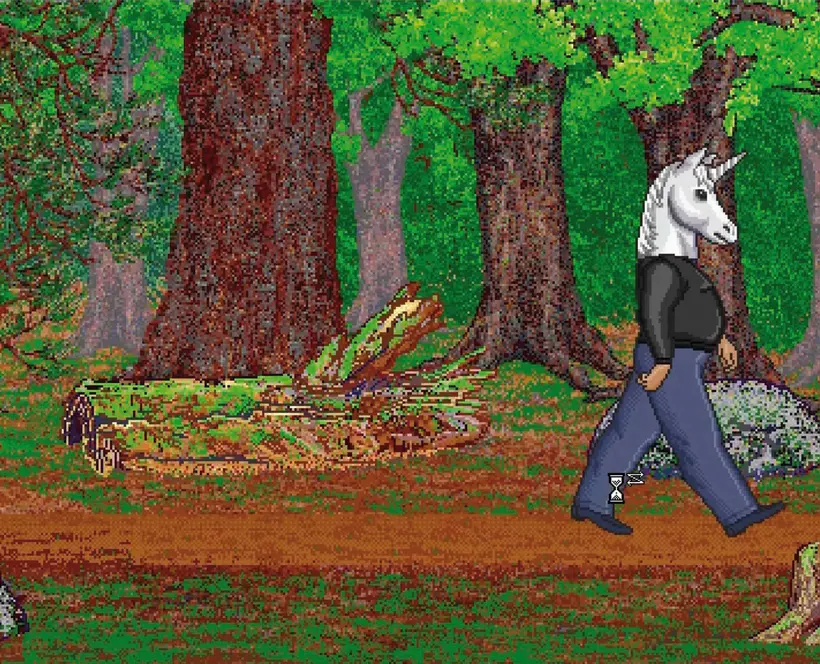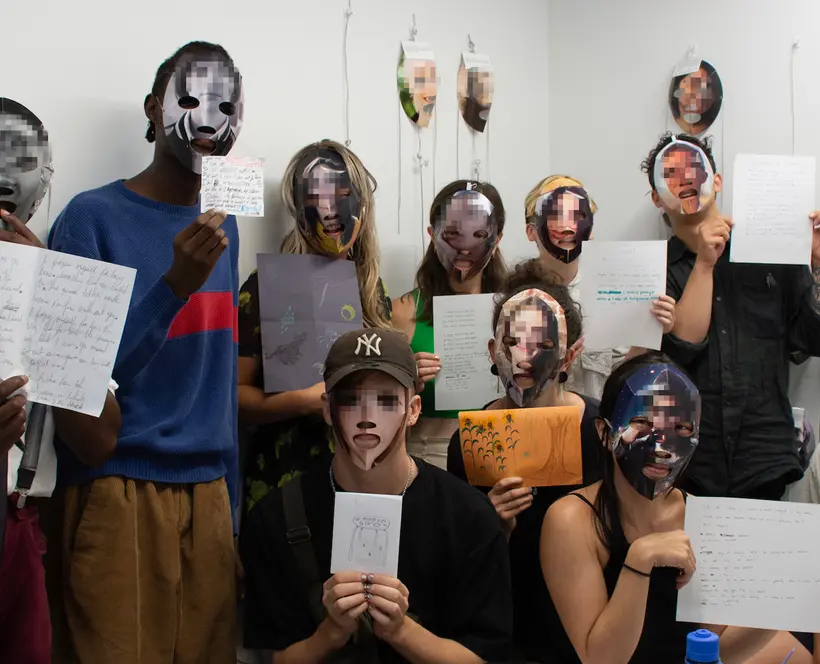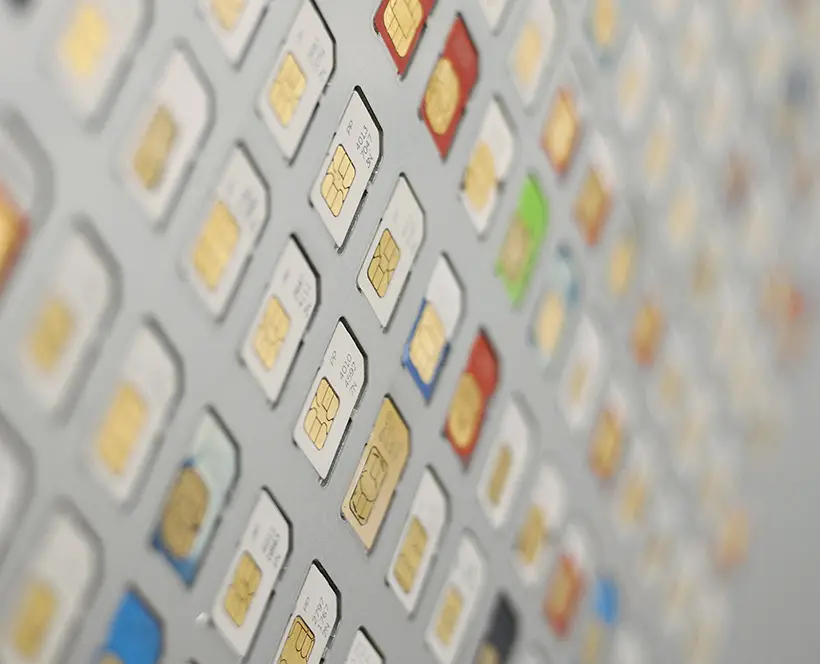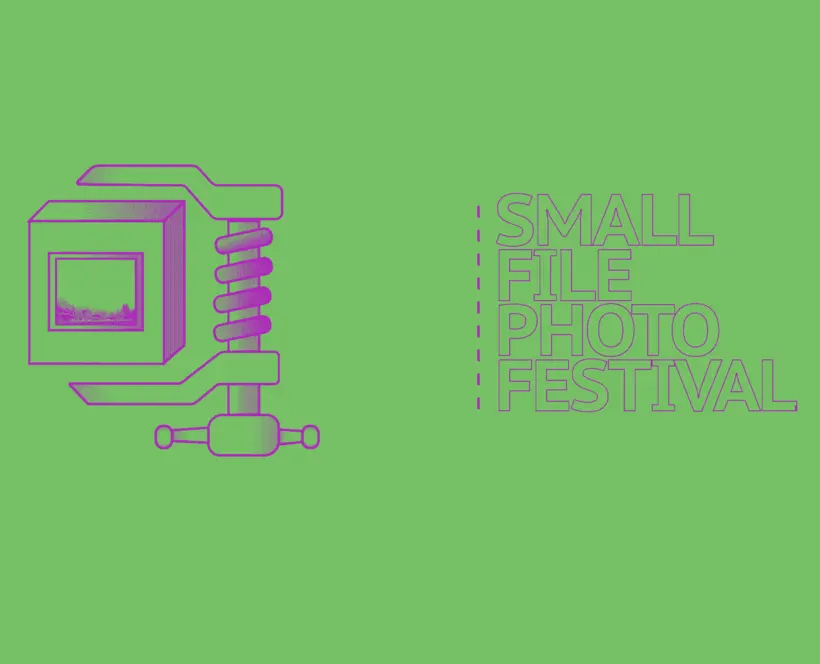A one-day seminar bringing together current research at CSNI (Centre for the Study of the Networked Image) with presentations by Marloes de Valk, Graham Dunning, Theresa Kneppers, Teodora Fartan, Rachel Falconer, and with guest presentations by Janneke Adema and Joanna Walsh.
This is an event primarily for researchers at the School of Arts at London South Bank University, but you can register your interest in attending by sending an email to digital.programme@tpg.org.uk
The evening event with Joanna Walsh is public. Registration available here.
Morning Session
10.30 Arrival and welcome
Updates on CSNI and its future programme with contributions from Annet Dekker and Katrina Sluis.
11.30 - 12.30 Janneke Adema - Promoting Bibliodiversity in Academic Publishing
Drawing from her monograph, Living Books. Experiments in the Posthumanities (MIT Press, 2021), and her research conducted as part of the Community-led Open Publication Infrastructures for Monographs (COPIM) project, Janneke Adema examines in this talk the potential futures of the scholarly monograph in an increasingly digital environment. With the demise of traditional gatekeepers and the introduction of new modes of publishing and distribution, conventional distinctions between publishing (as the activity of making information available to the public) and research are blurring, which has contributed to a raised awareness of when and why we publish (and for what reasons). In this context, this talk argues for the importance of experimenting with alternative ways of thinking and performing the academic monograph and the way it is disseminated. As such, it will discuss both conceptual experimentation with the ways in which publishing is organised and governed, by ways of the principle of ‘scaling small’— as applied in various publishing projects and collectives that Adema supports — as well as material experimentation, especially in relation to the general trend towards living books and the iterative and dynamic publishing of open, distributed, differential, and versioned research, all experiments in knowledge production and dissemination that have the potential to critique our increasingly object-based and commodified scholarship. Adema argues how thinking about publishing as post-publishing highlights how publishing itself, and in particular the platforms on which we publish, should be conceived as an integral part of the research process, and as inherently shaping it.
Afternoon Session
13.30 - 14.15 Marloes de Valk - Light Conversation: Attempts at Publishing Research [from/in] the Middle
This presentation is not about my research, it's about my attempt at communicating it while in the midst of it. As a social media averse person, terrible at light conversation, I set out to make interim outcomes public in a literally light way; needing little energy and resources to circulate. Because knowledge production is always collective, and I was generously given time and energy by the people I interviewed and spoke with, I wanted to give as much of the gathered insights back. I ended up giving workshops, writing papers and essays and doing performances; I created a wiki called the Damaged Earth Catalog and at some point found myself knee-deep in the long and winding history of tarot decks. I will show some of the resulting publications, share my theoretical inspirations and perform a materialist divination*.
* A type of divination not abstracted from, but entirely embedded in material environments and ecologies. Rather than trying to capture the future through quantification and abstraction of repeating patterns, performing a repetition of the present; it attempts to actively and collectively make space for reflection on the present in order to open paths to possible futures.
14.15 - 15.00 Graham Dunning - Extended turntable practice research cycles
My current practice-as-research project explores the affordances of a music-making system based around a DJ turntable with mechanical and electronic extensions to trigger and control other devices. The presentation introduces the work so far, with examples of my work within the different but overlapping contexts in which it is used: instrument design and making; live performance foregrounding improvisation; studio recording as fixed-media composition; and sounding kinetic sculpture.
I outline how I have structured the research project, illustrating my use of four consecutive "research cycles" based on Robin Nelson's doing-reflecting-reading-articulating-doing cycle. The CSNI event occurs shortly after the conclusion of the first cycle, an ideal point at which to present an overview of the project's current state.
In early June I completed a short artist residency, developing a new collaboration with instrument designer Sam Underwood and his Acoustic Modular System. Over the course of a week we constructed and iterated a new performance work and series of recordings. My presentation uses this collaboration to illustrate the methods of my research practice.
To conclude, the presentation looks ahead to the next stages of my project: focusing on improvisation both in different performance ecosystems (Waters 2007) and on a macro scale, including improvising with materials in the context of making, "follow[ing] the ways of the world" (Ingold 2010).
References:
Ingold, T. (2008). Bringing Things to Life: Creative Entanglements in a World of Materials. [online] Available at: https://laboratory.culturalinquiry.org/wp-content/uploads/2016/03/Ingold-bringing-things-to-life.pdf [Accessed 8 June 2023]
Nelson, R. (2013). Practice as research in the arts : principles, protocols, pedagogies, resistances. New York: Palgrave Macmillan.
Waters, S. (2021) The entanglements which make instruments musical: Rediscovering sociality, Journal of New Music Research, 50:2, 133-146, DOI: 10.1080/09298215.2021.1899247
15.15 - 16.00 Theresa Kneppers
Information forthcoming
16.00 - 16.45 Teodora Fartan - In Search of Virtual Elsewheres
This lecture performance sets out to explore the more-than-human entanglements that can take shape within networked worlds of virtual possibility and proposes worlding as a strategy for conjuring alternatives to current master narratives, situating it as a practice that enables the direct experience of other modes of being in the world through the affordances of software. As Isabelle Stengers urges us, this is a critical moment to imagine ‘connections with new powers of acting, feeling, imagining, and thinking’ (2015) - through a framing of worlding as a post-colonial, algorithmically-driven mode of resistance to our fraught present, this paper suggests that software and immersive technologies can carry complex cultural significance and allow us to conjure futures and prototype, develop and render these into being.
17.00 - 18.00 Rachel Falconer - MUTABLE PROTO-PROTOTYPE SYNDICATE LAUNCH
The Diffracted Gaze Continuum is the first in a series of public-access collaborative cartographic events, designed to collectively prospect for and cross-examine a developing set of emergent tensions arising between distributed audience engagement, alternative curatorial models and the increasingly fragmented status of networked cultural artefacts circulating across galleries and institutions.
Public Event
18.30 Joanna Walsh - Girls Online
The internet looks like the present but the internet is (simultaneously) history. What looks like the history of the corporation is also the history of the amateur; the history of the hacker is also the history of the user; the history of the machine, the history of the human.
The internet-historical paradigm of amateur user/producer experience, the feminised confessional essay that has been called the 'First Person Industrial Complex' (Laura Bennett, 2015), relied on the precarity of its creators even as it opened up the world of online (and eventually offline) media to a wider and more diverse range of lives and experiences.
What I'd term Girl Rhetoric, an online mode familiar across platforms from blogs to Instagram to TikTok, originating in offline feminised styles from vaudeville to chicklit, has provided a methodology for noticing and delineating the 'Cruel Optimism' (Lauren Berlant) of the conditions of its production while paying lip service to the superficial demands of platformed appearance, and also providing surprising opportunities for re-framing, connection and agency.
Biographies
Dr Janneke Adema
Dr Janneke Adema (she/her) is a cultural and media theorist working in the fields of (book) publishing and digital culture. She is an Associate Professor in Digital Media at The Centre for Postdigital Cultures (Coventry University). In her research she explores the future of scholarly communications and experimental forms of knowledge production, where her work incorporates processual and performative publishing, radical open access, post-publishing, scholarly poethics, media studies, book history, cultural studies, and critical theory. She explores these issues in depth in her various publications, but also by supporting a variety of scholar-led, not-for-profit publishing projects, including the Radical Open Access Collective, Open Humanities Press, ScholarLed, and Post Office Press (POP), and the Research England and Arcadia funded Community-Led Open Publication Infrastructures for Monographs (COPIM) project, on which she is Co-PI. Her monograph Living Books. Experiments in the Posthumanities (MIT Press, 2021) is openly available. You can follow her research on openreflections.wordpress.com.
Joanna Walsh
Joanna Walsh is a multidisciplinary writer for print, digital and performance. The author of eleven books (several co-written with AI that she has coded), her publishers include Semiotext(e), Bloomsbury and Verso. She is the creator of the digital projects, seed-story.com and miss-communication.ie. Her work has been performed/exhibited at venues including IMMA, the ICA, the Whitworth and Sample Studios Cork. She is the 2020 Markievicz Awardee for Literature in Ireland and a UK Arts Foundation fellow. She is an arts activist, founding and running the Twitter campaign @read_women (2014-18), described by the New York Times as ‘a rallying cry for equal treatment for women writers’ and @zinesinthedark, a lockdown zine exchange, supported by Arts Council England. She currently runs @noentry_arts (also on Twitter). She is a MSCA Postdoctoral Fellow at NUI Maynooth. She can be found at @badaude on Twitter, and at joannawalsh.ie.




